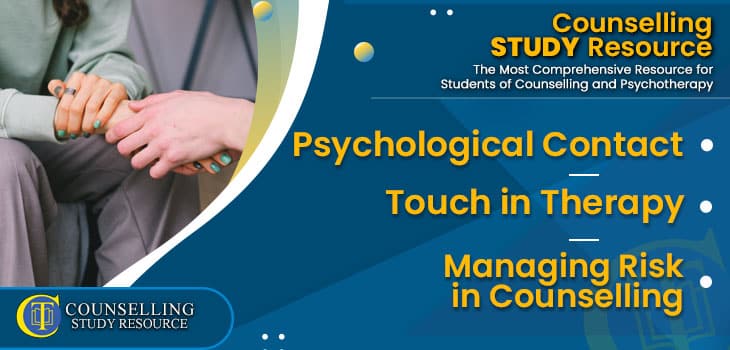See Counselling Skills Used in Real Sessions by Qualified Therapist
Real Sessions – Real Presentations – Real Skills
Gain the competence and confidence to use counselling techniques effectively!

In Episode 258 of the Counselling Tutor Podcast, your hosts Rory Lees-Oakes and Ken Kelly are back with this week’s three topics:
What is Psychological Contact?
Psychological contact was recognised by Carl Rogers as an important condition of person-centered therapy. In this section, Rory and Ken discuss psychological contact, and the things that may stand in its way:

Real Sessions – Real Presentations – Real Skills
Gain the competence and confidence to use counselling techniques effectively!
Touch in counselling is something that can differ from practitioner to practitioner. In this section, Rory and Ken share their own thoughts on touch in therapy, and some things you may want to consider:

On-demand access to a rich lecture library covering theory, skills, and professional development for counselling students—Mapped to the UK awarding body criteria
“The Student Library has been BRILLIANT, I can’t recommend it enough!
It has been a lifeline in helping me prepare for practice and my first clients. If you’re considering it, go-for-it, it’s absolutely worth it!”
Kelly – Graduated and now in practice.
In this week’s ‘Practice Matters’, Rory speaks with a close friend of Counselling Tutor, Sally-Anne Armitage on managing risk.
The key points of this discussion include:
What is Psychological Contact?

Get on-demand Certified CPD that is implementable in your practice
